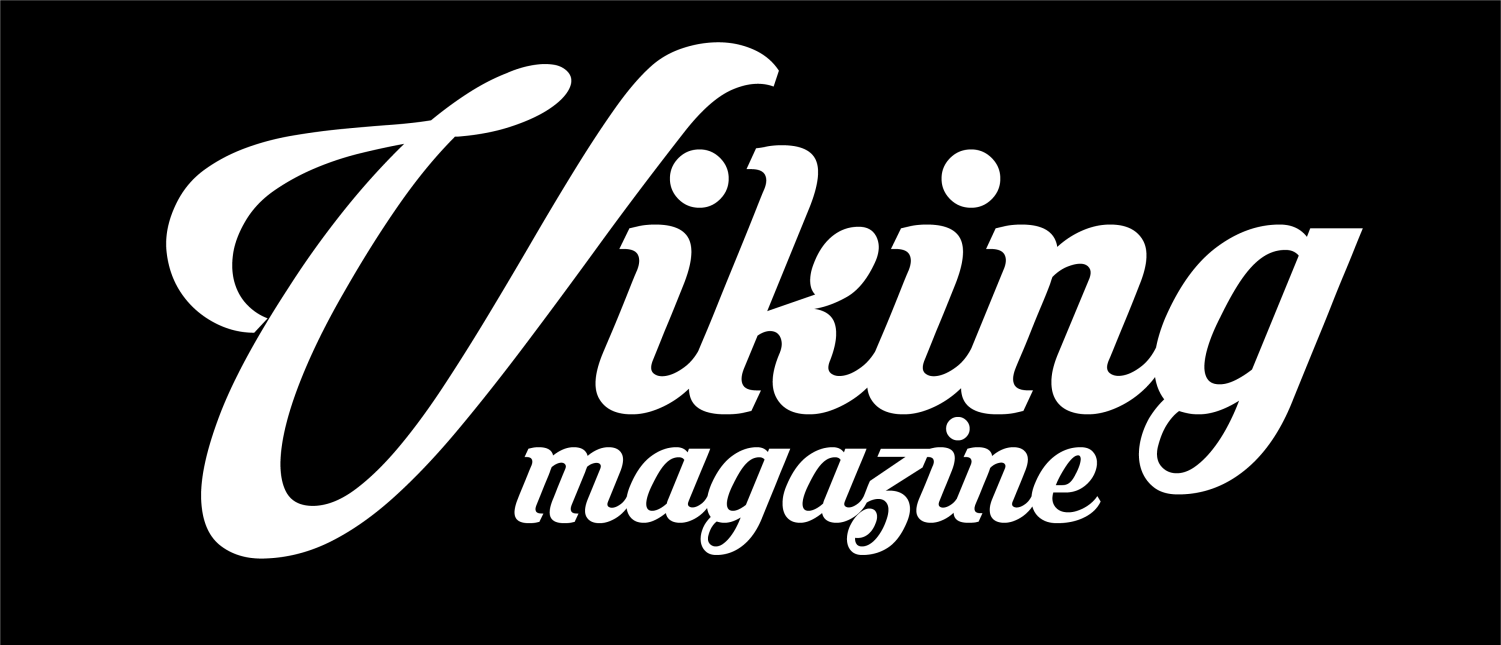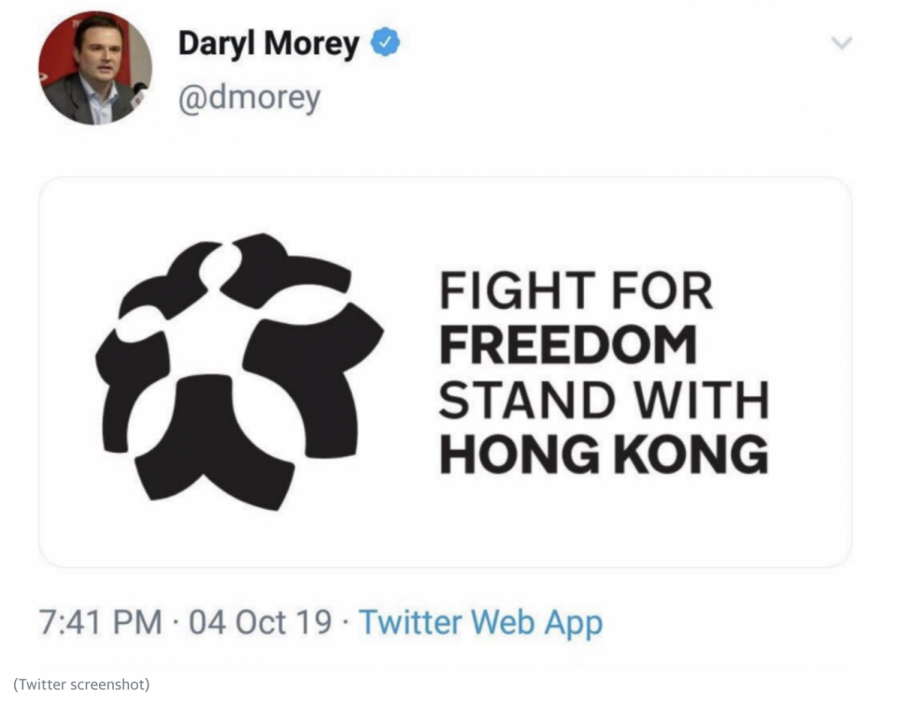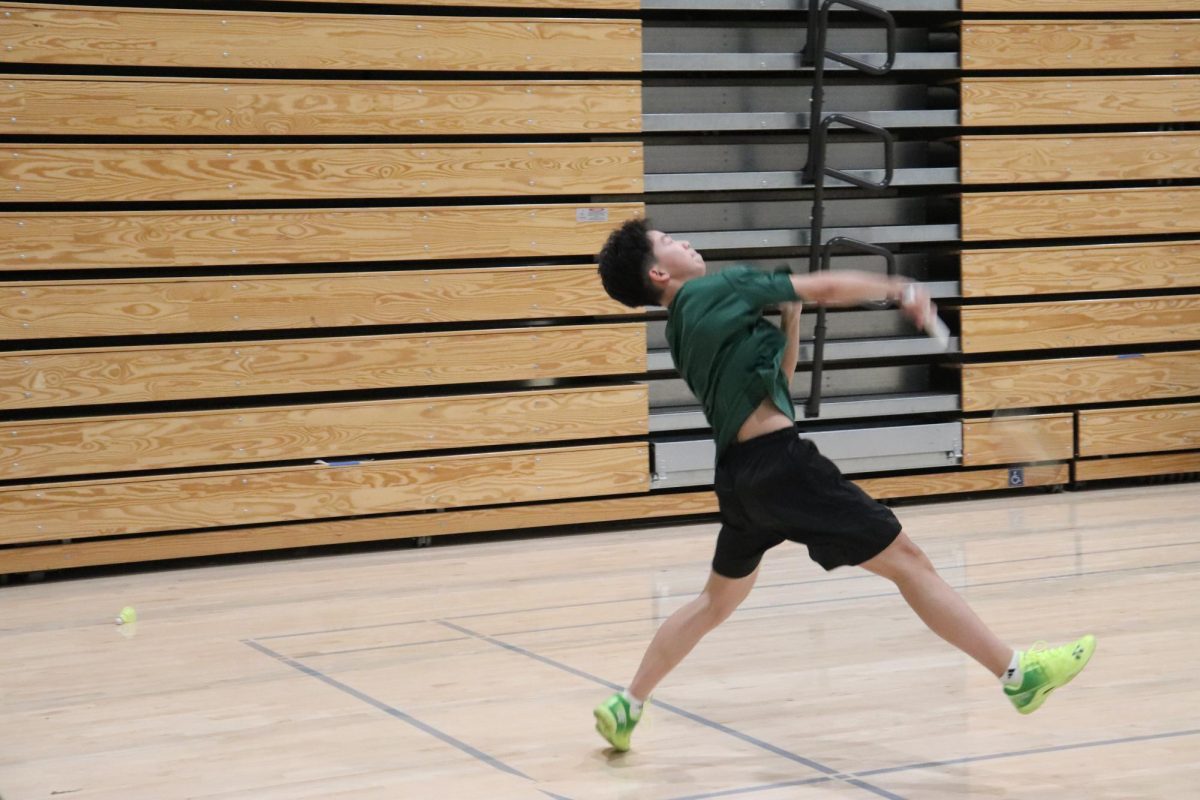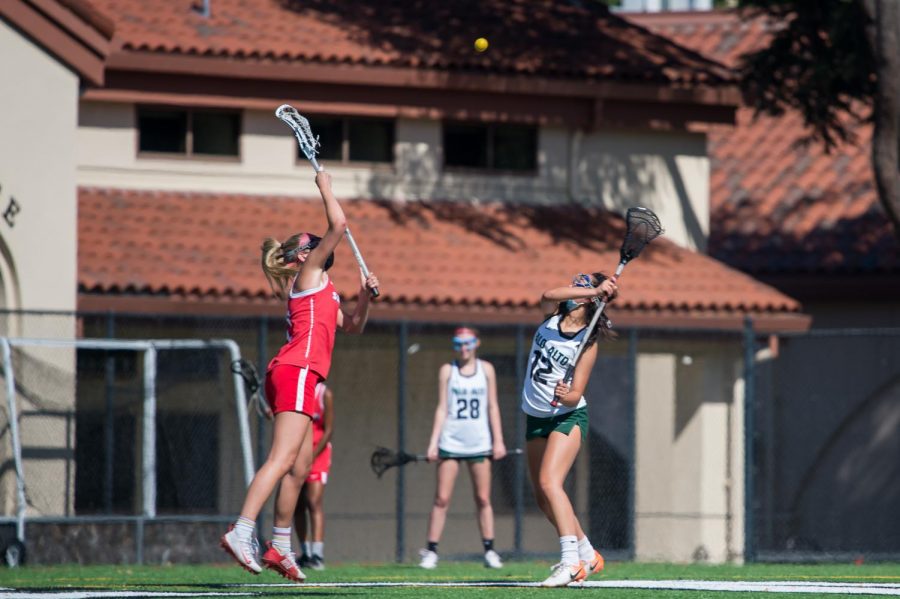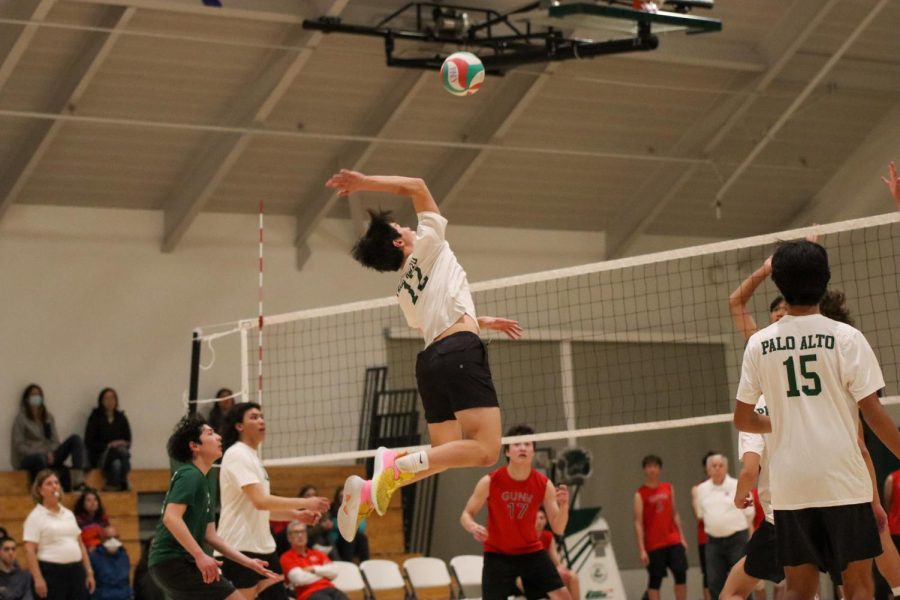PRO/CON: Revisiting Rocket’s Former GM Morey’s Infamous Hong Kong Tweet One Year Later
December 3, 2020
In late October 2019, the Houston Rockets general manager Daryl Morey tweeted his support for protestors in Hong Kong. The post spurred significant backlash from China both towards the Rockets organization as well as the NBA as a whole. One year later, I decided that the incident, a fascinating web of politics, economics, and sports, deserves further analysis.
To contextualize the Chinese retaliation to the tweet, one first must understand the tension in Hong Kong. The island is a region that was transferred from British imperial control to the Chinese government in 1997. As a condition for the exchange, Britain demanded that the island remain semi-autonomous, meaning that it maintained the right to have judicial and political systems independent from China.
In early 2019, a bill was proposed by the mainland government that would give them the right to try Hong Kongese criminals in foreign countries, including China.The Chinese government has touted the bill as a measure to prevent dangerous criminals from eluding punishment by fleeing the island. Protesters in the region feared that this law could allow mainland China to extradite political leaders to China and try them on false or flimsy charges, further challenging democracy in Hong Kong. While the bill proposition was not the sole cause of tension, it proved to be an accelerant that ignited months of violent protests.
It is also vital to understand the NBA’s relationship with China, particularly with the Houston Rockets franchise. The first Chinese player to play in the league was Yao Ming, a 7’6’’ center for the Rockets and a fan favorite in his homeland. While the NBA had played exhibition games in China since 1979 and games had been aired in the country since the 80s, the league’s relationship with China exploded with Yao’s arrival in Houston. The NBA took advantage of Yao’s superstar status to capitalize on the Chinese market, which has since ballooned. Last year, over 500 million people in China watched an NBA game, making it the largest foreign market for the league. While Yao is no longer playing, the Rockets franchise he was so strongly associated with, remained adored by the Chinese public. That is, until last October when Morey’s tweet was published.
The post received immediate backlash and support from both sides of the Atlantic. Tencent, a Chinese media titan who has a $1.5 billion partnership with the NBA over the next five years, and the Chinese state TV both stated that they would no longer show Rockets games. The Chinese Basketball Association, whose president is none other than Yao Ming, announced they would suspend relations with the team. However, the domestic responses to the tweet were perhaps more interesting. The Rockets owner was quick to distance the franchise from Morey’s comments, while the league commissioner, Adam Silver, was more delicate in his reflection.
“As a values-based organization that I want to make it clear … that Daryl Morey is supported in terms of his ability to exercise his freedom of expression”.
However, he did not gloss over the challenges that it posed to the league
“There is no doubt, the economic impact is already clear”, he said. “There have already been fairly dramatic consequences from that tweet”.
Morey’s support of the protesters eventually led to him stepping down from his role as the Rockets general manager, but with a year’s wisdom behind us, was Morey right to post his tweet?
Disclaimer: This article is not intended to provide a definitive answer to the above question. Its goal is simply to review the event and allow the reader to consider the impact of Morey’s tweet.
Morey Was Right to Post His Tweet
It was beneficial for Morey to post the tweet because it not only spurred healthy conversation regarding the protests and the extradition bill, but it also was a form of courageous defiance against the Chinese government at his expense: an action that few, including the US government and the NBA, had dared take for fear of economic repercussions.
It is a given that all US citizens have the right to express themselves as part of the first amendment. But this article does not pertain to whether Morey could post the tweet, but rather to whether or not he should have. The freedom of expression exists because there is a benefit to society when people share opinions. Stating and considering beliefs from different perspectives is how we evaluate what type of action is necessary for a complex issue. With his tweet, Morey expressed a personal belief that engaged millions of people across social media on the topic of the extradition bill. This sharing of ideas helped to deepen the global understanding of the conflict.
However, his tweet was also a form of standing up to the abuse of power of the Chinese government both in Hong Kong and beyond. The government has worked to silence and weaken protesters like Joshua Wong, a young activist who was a leader in the protests, who was recently imprisoned for his participation. Their actions have limited the sharing of ideas as a whole. This censorship is in contrast to the active conversation that benefits society.
Additionally, for months the world has known that the Chinese government has kept over a million Uighur Muslims in labor camps, but few have expressed their dissent due to fear of retribution. Both the US government and the NBA placed economic benefit and stability over standing up to China. Morey was also benefiting from the country, earning millions of dollars a year as a general manager of the major sports franchise most connected with China, but he risked his livelihood to be the upstanding voice for the protesters and the marginalized Uighurs that so many had failed to be out of fear.
Morey has certainly paid a steep price for his tweet, but he was right to post it as it has been a symbol against the oppression of the Chinese government.
Morey Should Not Have Posted His Tweet
Morey was wrong to make his tweet because it significantly set back what had been promising overseas growth for the NBA. The post also caused economic harm to many who were in no way connected to Morey or his beliefs. Furthermore, the US government and the NBA intentionally did not call out the Chinese government for the actions they took against protesters or the Uighur Muslims to maintain stability for economic relations. Morey’s tweet undermined these efforts.
Morey should not have posted because it significantly hindered the NBA’s largest foreign market and jeopardized the league as a whole. He should have recognized that his decision could impact the NBA’s bottom line and thus the livelihood of those who it employs. The NBA generates approximately $9 billion per year and roughly six percent of that revenue comes from China. The Rockets themselves paid the largest price for Morey’s tweet, as they lost over $20 million from the fallout. There is no doubt that Morey’s uncalculated tweet financially endangered not only his franchise but, to an extent, the league as a whole.
Morey’s post also jeopardized a growing group of NBA players who have contracts with Chinese brands. Notable names include Dwanye Wade with Li-Ning and Klay Thompsen with Anta. The tweet forced these players into a challenging position, and many, including one of Morey’s own players, James Harden, came forward with statements that separated themselves from the tweet.
Clearly, Morey’s post affected the well-being of those within his organization as well as players beyond. He should have understood that sharing his personal opinions could have an adverse effect on the well-being of many individuals who were in no way connected with his belief.
Perhaps most importantly, Morey undermined the relations between the NBA and China as well as the US and China. These relationships are carefully calculated affairs that are built over long periods of time and with ample consideration from a large group of people. While Morey’s actions didn’t spur any drastic change, his decision to comment on what the Chinese wanted to be an internal affair was brash and further strained the relationship between the superpowers. It is evident that the protesters were violently oppressed and the country had established work camps for Uighur Muslims. But those in control of the US and the NBA had decided that the possible downsides of fraying relations outweighed the benefits of being an upstander. Morey’s tweet bypassed these considerations and amplified tensions as a whole.
In his uncalculated tweet, Morey financially endangered many who were entirely unconnected with him or his beliefs and undermined the relationship between the league and China, and to an extent, the US government and China.
While I have only touched the surface on a truly complex issue, I believe that analyzing events like Morey’s tweet from both sides is a crucial practice as similar issues will only become more common as our world becomes ever more connected.
